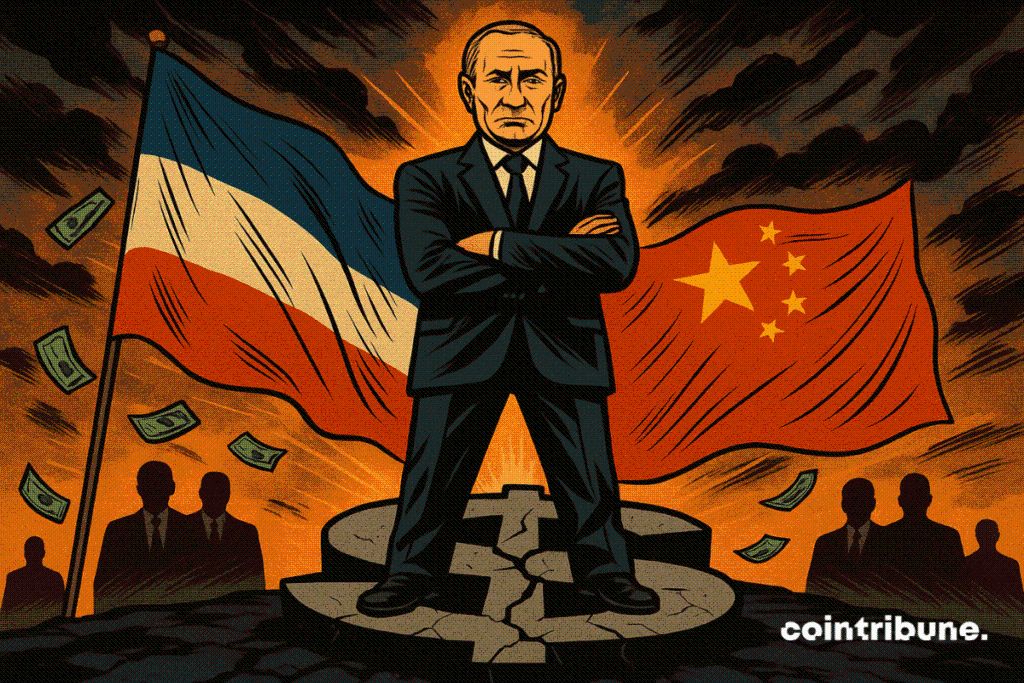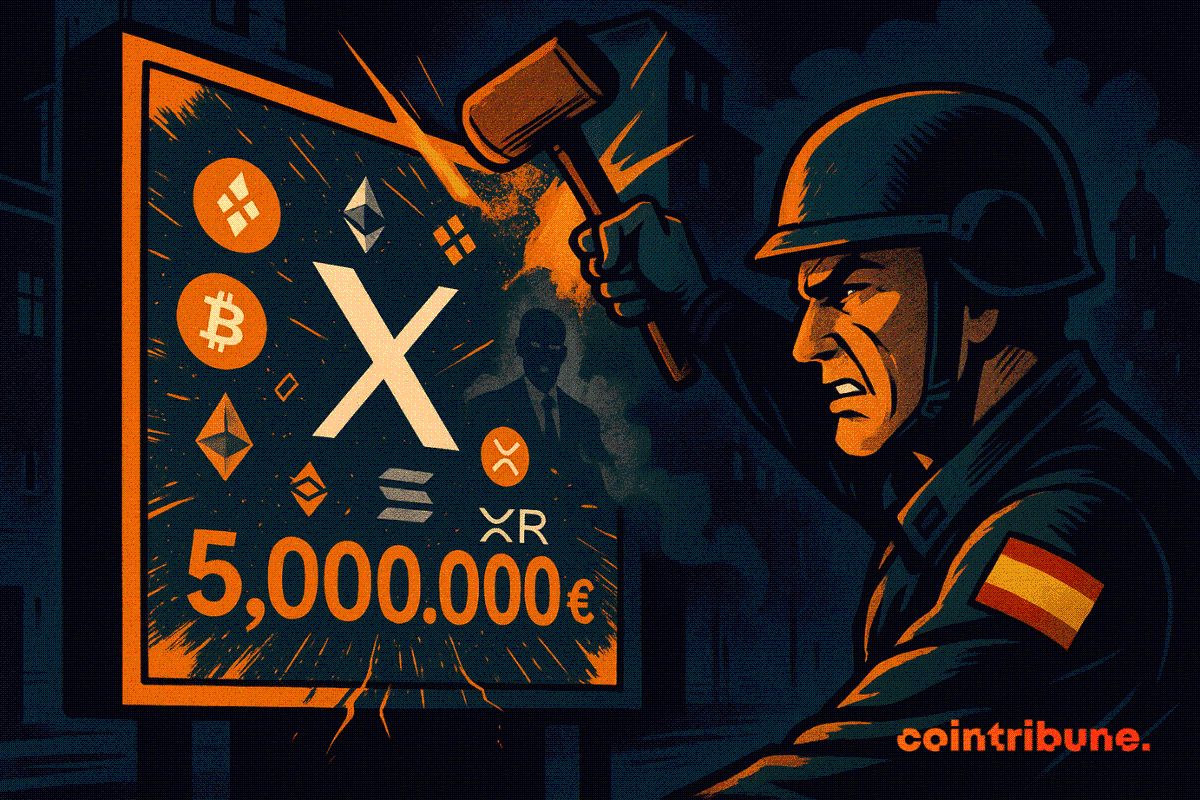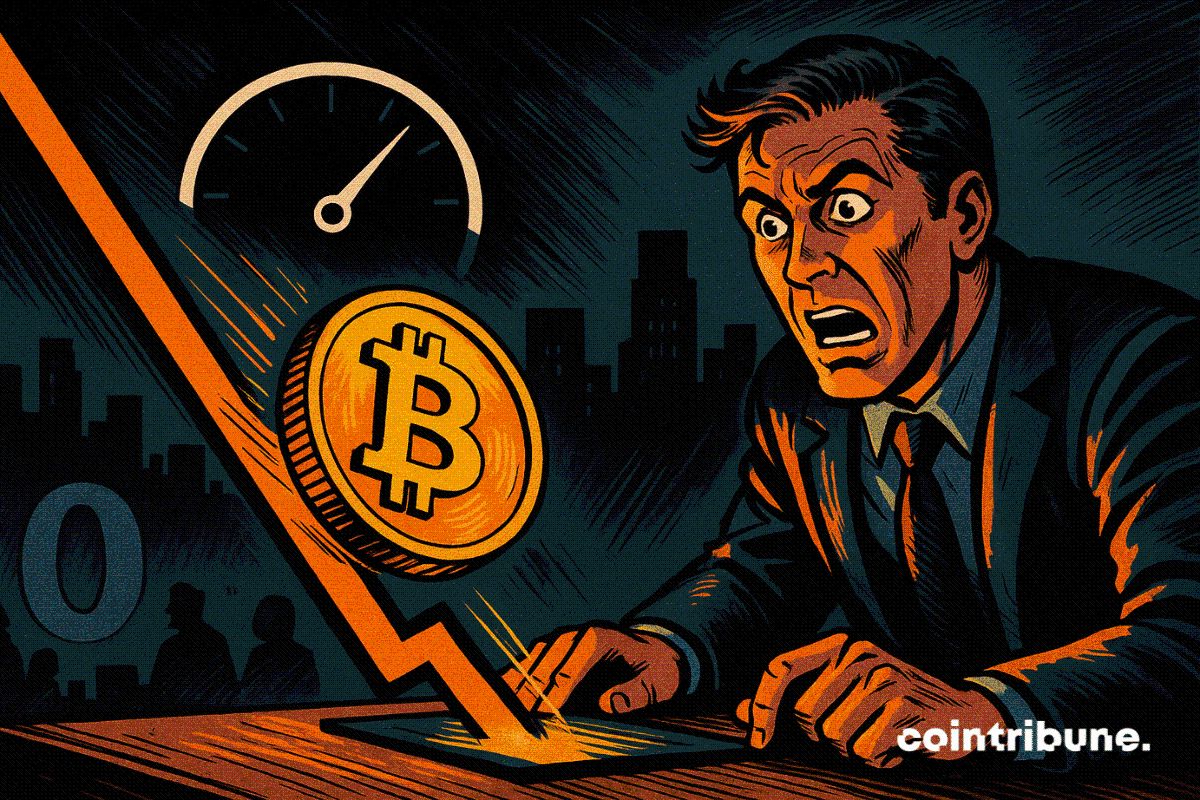Moscow And Beijing Break Records In Non-Dollar Trade
While the West defends the supremacy of the dollar and the euro, Moscow and Beijing accelerate their divorce from these currencies. Vladimir Putin confirmed that Russo-Chinese trade is now conducted almost exclusively in rubles and yuan. This shift, supported by a spectacular rise in bilateral trade and a deliberate strategy, could mark a decisive step towards a multipolar financial order.

In brief
- Vladimir Putin confirms that trade between Russia and China is now conducted almost exclusively in rubles and yuan.
- The dollar and the euro are reduced to a ‘statistical discretion’, with no real role in bilateral transactions.
- Since 2021, Russo-Chinese trade has increased by 100 billion dollars, driven by energy and automotive sectors.
- Moscow and Beijing are building a payment system protected from the influence of third countries and global shocks.
Trade now mostly in local currencies
In an interview, Vladimir Putin stated that the vast majority of trade between Russia and China is now conducted in rubles and yuan, relegating Western currencies to a marginal role, while the two members of the BRICS alliance have just signed a trade record .
“I emphasize that although trade figures are expressed in U.S. dollar equivalents, transactions between Russia and China are conducted in rubles and yuan, with the share of the dollar or euro reduced to a statistical disparity”, he specified .
This statement reflects a dynamic initiated since the outbreak of the conflict in Ukraine, with Moscow’s desire to free itself from the Western financial system.
Putin also highlighted the growing scale of this economic cooperation with Beijing, recalling that China has become Russia’s top trading partner. He indicated a 100 billion dollar increase in trade since 2021. This development is based on several pillars :
- The systematic use of local currencies (ruble and yuan) in trade settlements between the two countries ;
- The collapse of the share of the dollar and euro, now considered as accounting references without an operational role in transactions ;
- The significant increase in bilateral trade, particularly in the energy sectors (gas and oil), where Russia consolidates its position as the main supplier of China ;
- The expansion of non-energy trade flows, notably in the automotive field, where Russia is one of the world’s main markets for Chinese exports.
These elements reflect a structural, not cyclical, evolution in the economic relationship between the two powers of the BRICS bloc, in a framework now largely decoupled from monetary institutions dominated by the West.
Towards a monetary architecture independent from Western powers
Beyond the massive use of the ruble and yuan, Putin emphasizes another more structural aspect of bilateral cooperation: the building of a settlement framework protected from external pressures. He mentions the existence of a reliable trade system “protected from the influence of third countries and negative trends on global markets”.
This statement, already hinted at during his meeting with Xi Jinping in May, underlines the joint will of Russia and China to build an autonomous payment infrastructure, resilient against geopolitical disruptions.
This system, still little detailed publicly, seems to rely on technical and financial protocols aiming to minimize exposure to Western instruments such as SWIFT or dollar clearinghouses.
In parallel, Putin mentions an intensification of efforts to reduce trade barriers, notably regarding Chinese automotive exports to Russia. This approach shows that cooperation goes beyond monetary considerations. It is anchored in a logic of consolidating a resilient economic bloc.
The implementation of these measures could prefigure a global mutation within the BRICS, of which Russia and China are pillars. Ultimately, this targeted dedollarization after the Rio summit could inspire other bloc members to adopt similar local currency settlement models, or even accelerate discussions about a possible common currency. If these scenarios materialize, they could redefine the currency hierarchy in international trade and weaken the central role of the dollar in cross-border settlements.
Disclaimer: The content of this article solely reflects the author's opinion and does not represent the platform in any capacity. This article is not intended to serve as a reference for making investment decisions.
You may also like
Spain Pins X for Illegal Crypto Promotion

Crypto Market Turns Cautious as Bitcoin Slips and Fear Index Hits Extreme Lows

XRP ETF Price Crash Explained
XRP Is Not Bitcoin Or Ethereum, Says Canary CEO As XRPC ETF Launches
